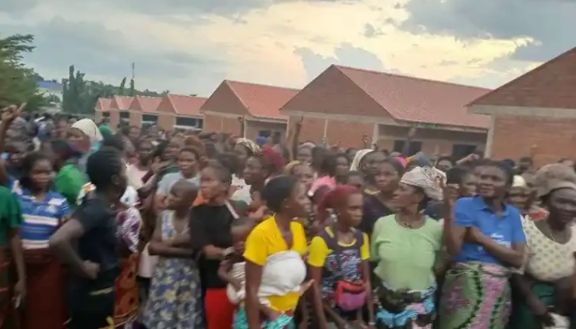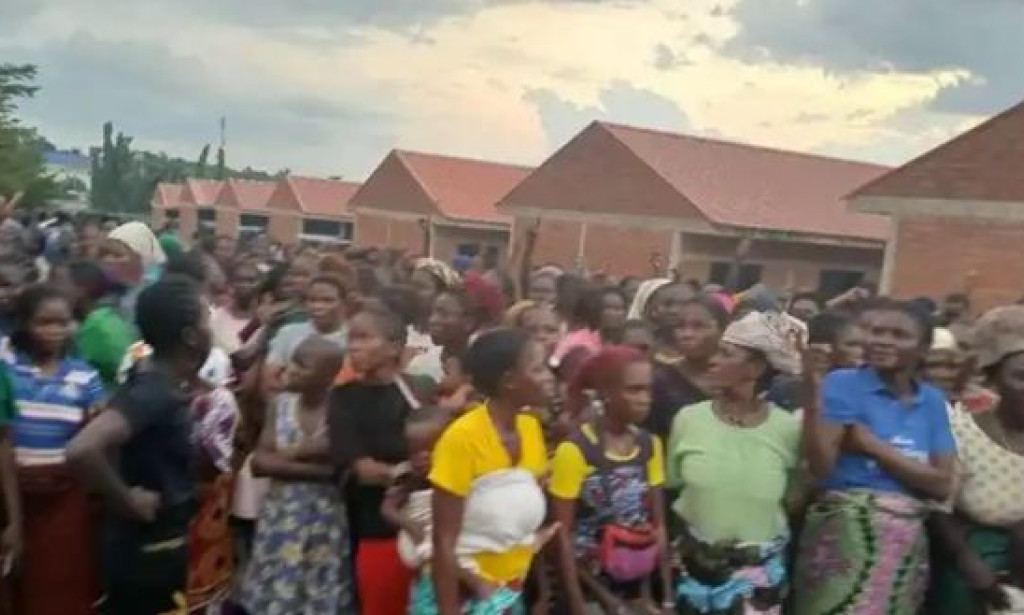
Thousands of people have fled their homes
Nigeria's President Bola Tinubu has ordered security agencies to bring an end to the wave of killings in central Benue state which he visited on Wednesday.
It is believed that more than 200 people died in a series of attacks across various communities last week.
The president met some of the victims and also announced the formation of a committee, comprising four former Benue governors and the two highest-ranking traditional chiefs in the state, tasked with restoring lasting peace.
How serious is the violence in Benue?
This is not a new problem but it has escalated recently.
Analyst Kabir Adamu, head of Beacon Security and Intelligence Limited, told the BBC that according to their database, 1,043 people were killed in Benue between May 2023 and May 2025.
The state has been at the centre of a violent conflict between herders and farmers that has led to the killing of thousands of civilians and many members of the security forces in Nigeria's so-called Middle Belt going back many years.
Herders, mostly from the Fulani ethnic group, move around to find food for their cattle, bringing them into conflict with the owners of farms, who say the cattle trample their crops and pollute water sources.
Some of them are armed with powerful guns, saying they need to protect themselves from cattle thieves.
While the farmers often blame the Fulanis for the violence, one of the community's leaders, Baba Othman Ngelzarma, told the BBC that his people were not behind the killings in Benue.
“Our people are not behind the Benue killings, we know there are some unresolved issues in Benue which have been there for some time.
“But we have never allowed any of our people to attack or kill others,” he says.
The authorities have not blamed any group but it is safe to assume that there are lots of victims on both sides, as any attack usually leads to revenge and then a cycle of violence.
What are the causes of the violence?
"Environmental degradation, notably climate change-induced desertification and irregular rainfall patterns in Nigeria's northern regions, plays a critical role," says Mr Adamu.
"These pressures compel herders to migrate southward... including Benue State, where resources are already strained.
"Rapid population growth in these areas further intensifies the competition for limited land and water, creating a self-reinforcing cycle of environmental stress, migration, and conflict escalation," he noted.
James Ayatse, the traditional chief of the Tiv community, who are mostly farmers, told President Tinubu during his visit that the killings were part of planned attacks orchestrated to take over their land.
"Your Excellency, it's not herders-farmers clashes, it's not communal clashes, it's not reprisal attacks or skirmishes, it's a calculated, well-planned, full-scale genocidal invasion and land-grabbing campaign that has lasted for decades," he said.
Tinubu did not meet any Fulani leaders.
Religion is an additional dimension in the conflict, some say, as the Fulanis are mostly Muslim while the farming communities in Benue are Christians.
Many also blame the authorities for not providing more security or coming up with policies that address the economic needs of both communities.

You must be logged in to post a comment.